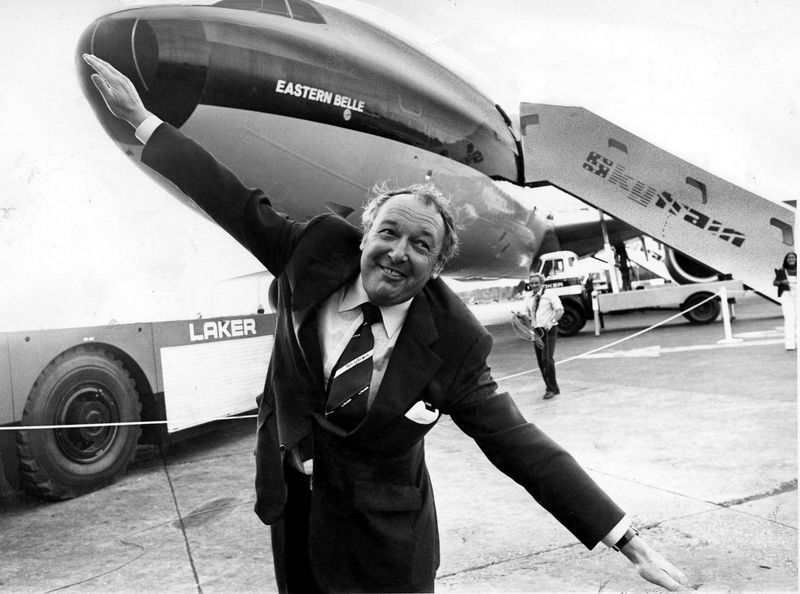Before his actual obituary in 2006, Sir Freddie Laker, who helped democratize plane travel and opened the heavens to the masses, “died” once before in the early ’80s, when the wings came off his business model. The opening of Terry Smith’s 1982 People article about Laker Airways when the Skytrain was falling:
“If any doubt remained that Sir Freddie Laker is a knight of the people, the events of this month have dispelled it. The bankruptcy of Laker Airways, which in 1977 pioneered cut-rate transatlantic air travel, struck Laker’s countrymen like the demise of an old friend. Within hours of the announcement a group of private citizens set up Freddie’s Friendly Fund, quixotically dedicated to saving Skytrain. In the first 24 hours they received $1 million in pledges—and by last week the tally was up to $5.5 million. In addition, the rock group Police promised to turn over the receipts of a Los Angeles concert totaling $185,000. From two schoolboys who donated 16 pence at a Laker airport counter to the group of Liverpool businessmen who offered $1 million, grateful travelers have rallied to Sir Freddie’s side. Says Laker stewardess Lisa Holden, who has spent her recent days gathering signatures on a petition of support: ‘If public opinion was anything to go by, we’d never go out of business.’
Unfortunately, Laker’s $388 million debt is more than even such extraordinary goodwill can erase. A British bank hoping to raise a last-minute $64.7 million fund to keep Laker flying admitted defeat, and an offer by the airline’s 2,500 employees to take a huge pay cut was similarly futile. For Laker staffers who lobbied vociferously at 10 Downing Street last week, their plea for government assistance was largely a symbolic last stand. ‘I’ll go under with Laker,’ said Capt. Terry Fenton. ‘I won’t find another job as a pilot, I won’t find any other job. There are no jobs. I’ll have to sell my house, just the same as 90 percent of the people here today.’
Laker was a victim of problems that have thrown other airlines into a tail-spin—skyrocketing fuel prices and decreased passenger traffic. When Pan Am (which lost $348 million in 1981) slashed its New York-London fare last November, Sir Freddie’s prospects darkened. The decline of the British pound also sapped his resources. Currently trying to sell the insolvent British Airways, Prime Minister Margaret Thatcher’s government announced that it could not intervene on Laker’s behalf.”
Tags: Lisa Holden, Margaret Thatcher, Sir Freddie Laker, Terry Fenton, Terry Smith

